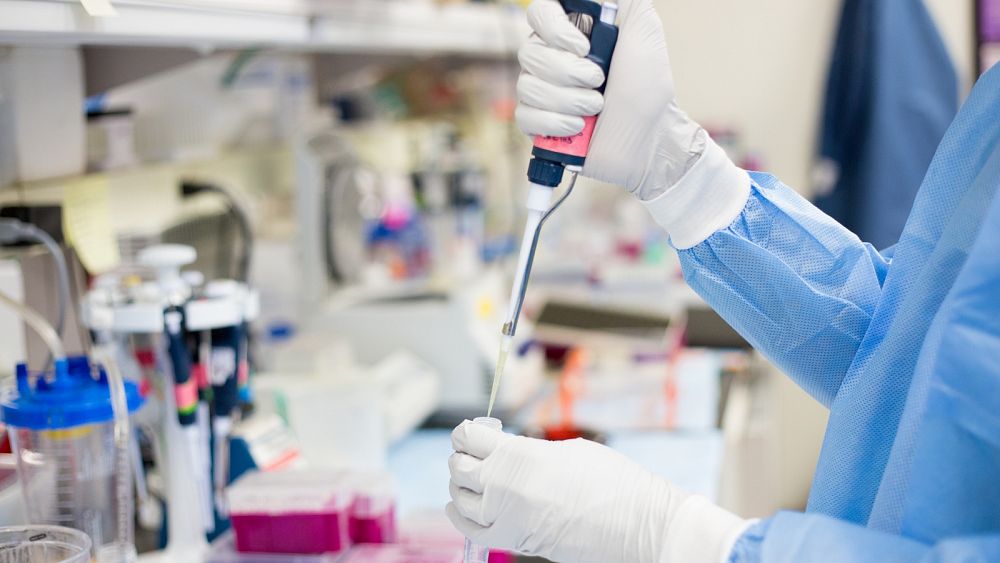
Since the COVID-19 pandemic began three years ago, its origin has turned into a heated scientific and political debate.
There are currently two main theories; the first is that the virus spilled over from animals to humans most likely from a market in Wuhan, China. The second theory: the virus spread from the Wuhan Institute of Virology after an accidental leak.
However, this Wednesday, the latter started to gain traction after FBI Director Christopher Wray said in an interview with broadcaster Fox News that COVID-19 «most likely» originated in a «Chinese government-controlled lab».
Wray’s comments come just days after news of the US Department of Energy’s «low-confidence» assessment that the virus most likely originated from a lab leak in China.
A low confidence assessment means that the information obtained is not reliable enough to make a robust conclusion.
In response, China slammed the FBI’s claims, with spokesperson Mao Ning saying that «the parties concerned should stop stirring up arguments about laboratory leaks, stop smearing China and stop politicizing the issue of the virus origin».
What is the scientific community saying?
But the scientific community is less divided on the question. Virologists say there is «very convincing» data pointing to an animal or zoonotic origin.
A comprehensive and peer-reviewed study published in July 2022 in the journal Science concludes that coronavirus most likely jumped from a caged animal to humans at the Huanan Seafood Market back in December 2019.
One criticism from the experts that study the virus is that they’re unable to look at the evidence the FBI is basing their lab leak claim on.
«The problem is that information is not shared. So it’s very difficult to see how that compares with the information there is for zoonotic spillover,» said Marion Koopmans, the Head of the Erasmus MC Department of Viroscience and co-author of the Science study.
«If new evidence comes in that needs to be reviewed and then maybe you reach a different conclusion, that’s not a problem. The problem is this is not a scientific discussion, but it’s a political discussion. And mixing those two, in my view, makes the discussion very difficult,» she told Euronews.
The situation has become a heavily politicised debate pitting the West against China. And the other problem has been transparency from Beijing’s side.
«It’s hard to assign a definitive origin to the COVID-19 pandemic; not least, by the time the WHO inspected the Huanan market it had been sanitized, removing forensic evidence,» Chris Newman, a Zoology Research Fellow at Oxford University told Euronews.
Peter Hotez, an American vaccine scientist hit out against the FBI’s statements on Twitter calling it «misinformation».
«The public evidence for lab leak is flimsy to non-existent. So unless the Department of Energy is sitting on unique classified data, which is possible, but I tend to doubt it given the “low confidence” assessment, this may not advance anything new. COVID like SARS MERS originated from bats and infected humans following passage from a second intermediate animal host,» he tweeted.
‘All hypotheses are still on the table’
A joint China-World Health Organization (WHO) investigation in 2021 called the lab leak theory «extremely unlikely».
However, the WHO investigation was deeply criticised and its director-general, Dr Tedros Adhanom Ghebreyesus, has since called for a new inquiry.
In a statement provided to The Cube, a spokesperson of the WHO said «We call on China and the scientific community to undertake necessary studies in that direction. Until we have more evidence all hypotheses are still on the table».
Scientists fear backlash online and offline
Meanwhile, some virologists such as Marion Koopmans worry the FBI statement could lead to a renewed wave of harassment against scientists.
«That is a concern. It’s a controversial topic, that’s why I hope that they [FBI] really act responsibly and share the information so that it really can be followed up».
She told Euronews that she and her peers have been attacked online and offline since the start of the pandemic for their research.
Scientists also remind us that it’s extremely complicated to come to a definite conclusion as to the origins of COVID-19. It took 29 years to identify the source of Ebola and 26 for HIV/AIDS.
So we may not get a conclusive for the origins of the virus anytime soon. But for the scientists studying the virus, it’s important to learn from the pandemic rather than assign blame.
«Vital really is not to apportion blame, but to learn from this pandemic, and take all possible steps to prevent this type of catastrophe happening again in the future,» said Newman.
